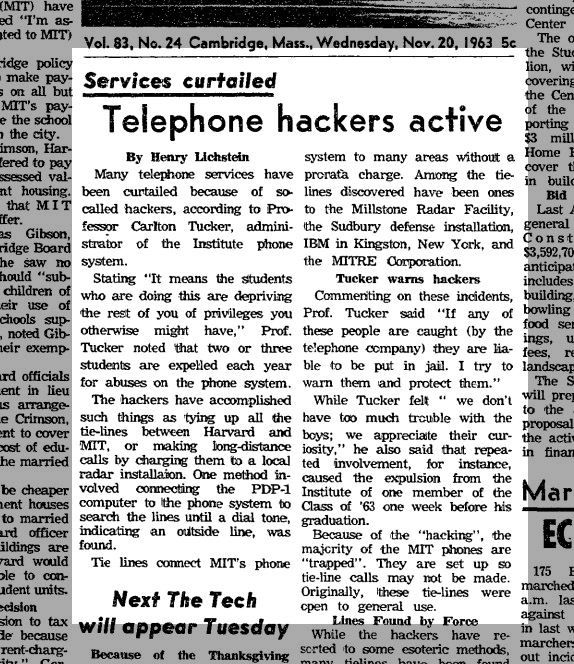The modern definition of the word “hack” was first coined at MIT in April 1955.

The MIT Men’s et Manus seal on the door was altered to portray two firefighters and the word “meminimus,” Latin for “we remember.” A mock firefighter sat inside the cab, which was adorned with a flashing red light. Photo: Nancy Crosby.
According to Wired magazine, the meaning of the word “hack” has been evolving for more than 500 years. Definitions include its earliest known usage in Middle English—“to cut with heavy blows in random fashion”—and its MIT-specific form— “mischief pulled off under a cloak of secrecy or misdirection”—that includes, but is not limited to, a stolen canon and a disrupted football game.
But the broader definition of a hack, commonly associated with disrupting technology, was also coined at MIT and quietly first appeared in the minutes of MIT’s Tech Model Railroad Club (TMRC) 60 years ago on April 5, 1955.
“Mr. Eccles requests that anyone working or hacking on the electrical system turn the power off to avoid fuse blowing.”
Mr. Eccles refers to William Eccles ’54, SM ’57, a then-MIT graduate student and member of the railroad club. In a 2014 post on trainorders.com, Thomas Madden ’59 elaborated on Eccles’ involvement.
“‘Hacks’ was the term applied to all manner of technology-based practical jokes at MIT, such as thermite welding a stopped trolley car to the tracks on Massachusetts Ave. I believe TMRC member Jack Dennis ’54, SM ’54, and ScD ’58 are credited with applying the term as we now use it, but he was undoubtedly abetted by a fellow graduate student and roommate, Bill Eccles.
“I remember each of them shouting ‘Hacker!’ in the club room whenever someone did something questionable—and they were particularly quick to shout it at each other. Often for no reason.”
And while many of the timeless MIT pranks that predated 1954—like gags on the old East Campus dorm in the 1930s or the Dipsy Duck in the late ’40s—are now known as hacks, Madden doesn’t recall that monicker during his time at MIT.
“Back then, I don’t remember calling them hacks,” he told Slice of MIT. “They were just practical jokes or things you did and hoped you wouldn’t get caught.”
And for good measure, according to wordorigins.com, the first known connection between hackers and computing also occurred at MIT, in a November 20, 1963, article in The Tech.
“Many telephone services have been curtailed because of so-called hackers, according to Profess Carlton Tucker…The hackers have accomplished such things as tying up all the tie-lines between Harvard and MIT or making long-distance calls by charging them to a local radar installation.
“One method involved connecting the PDP-1 computer to the phone system to search the lines until a dial tone, indicating an outside line, was found…And because of the ‘hacking,’ the majority of the MIT phones are ‘trapped.’”
Hack isn’t the only world that hatched for the TMRC’s unique jargon. The club created released own dictionary beginning in 1959, and TMRC-spawned words like “foo,” “mung,” “frob,” and “cruft” are familiar words in the lexicon of computer programming.
